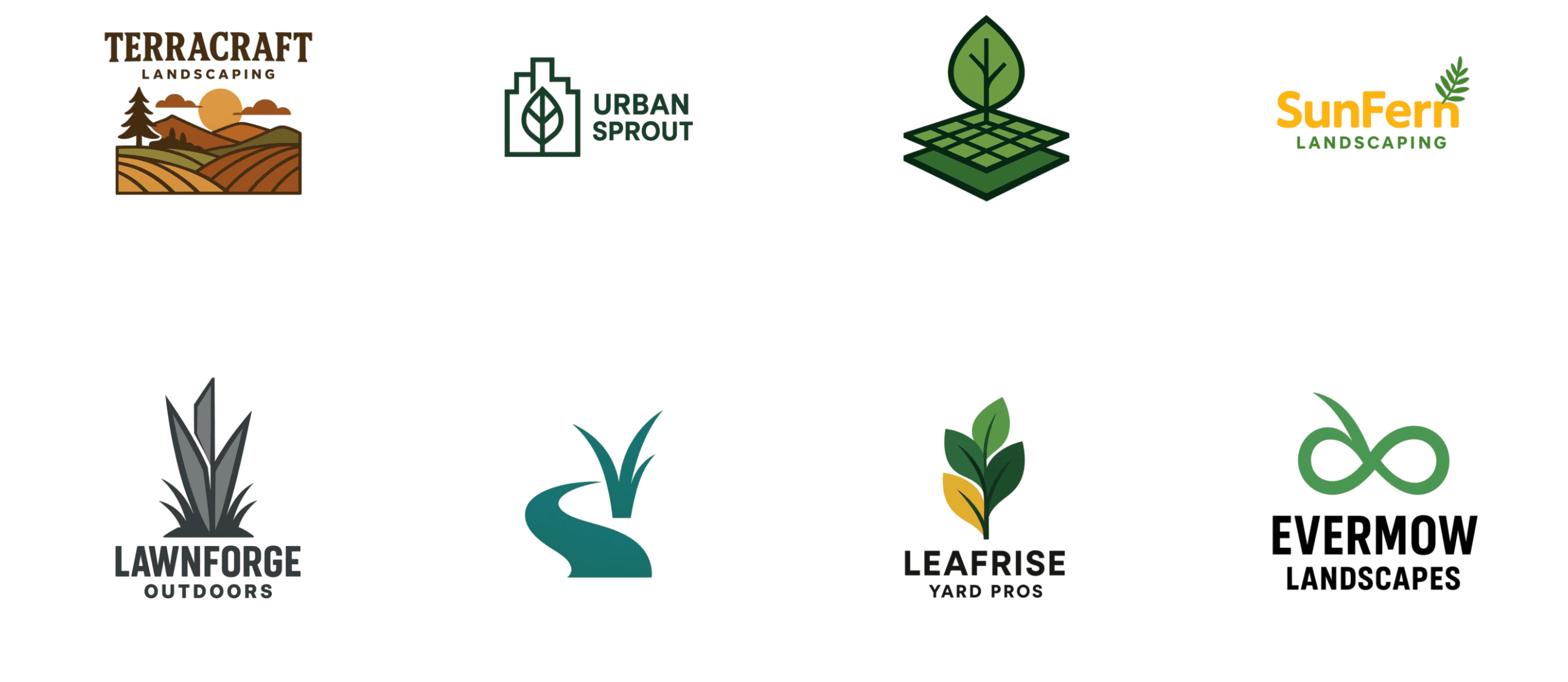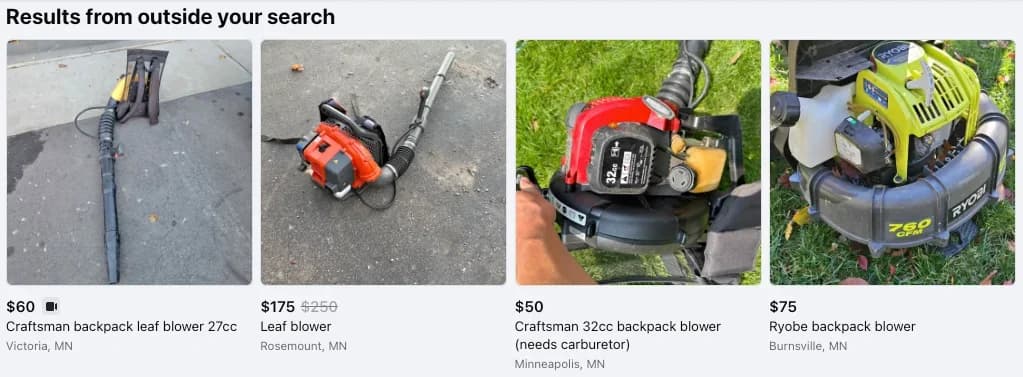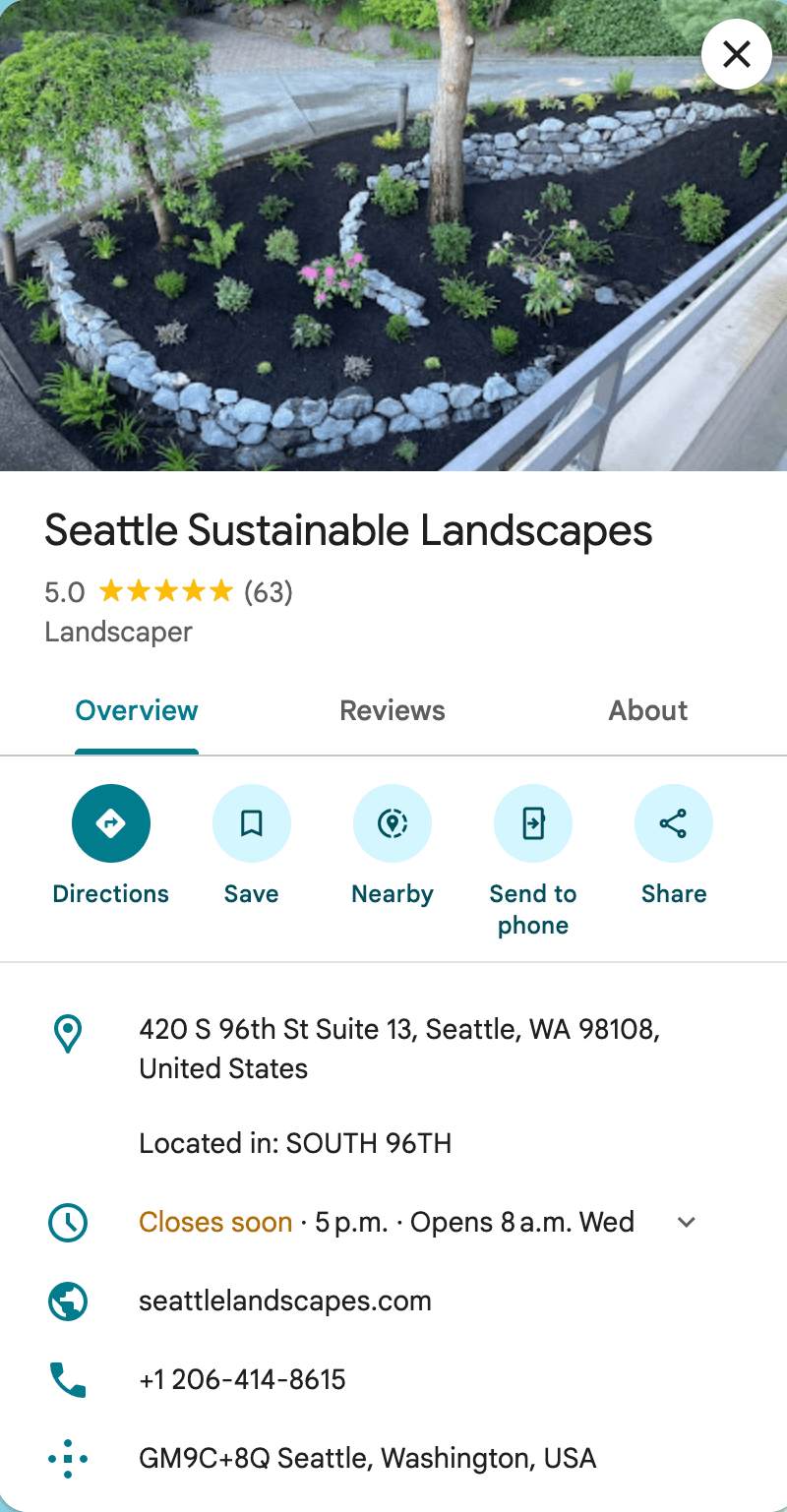Maybe you've been thinking about how to start your own landscaping business for months, scrolling through forums and worrying about licenses. Maybe you've bookmarked 47 articles about business plans and equipment lists.
Stop researching and start building.
All you need to get your first client is a phone, basic equipment, and one weekend. That's it. No $50,000 startup loan. No four-year apprenticeship.
And once you get started, the scary stuff – like taxes, W-2s, and licenses – will feel way less intimidating.
Step 1: How to start a landscaping business with a 1-page plan
Your landscaping business plan should fit on one page.
Answer these four questions:
- What services will you offer? (Installation, hardscaping, design, or all three?)
- Who's your ideal first customer? (Residential homeowners? Commercial properties? New construction?)
- What will you charge? (Start with $50-75 per hour for labor, adjust based on your market)
- How will you find clients? (Nextdoor? Facebook groups? Posting flyers in wealthy neighborhoods?)
That's it. You can refine this as you go, but you need these answers to help you focus yourself before you spend a dollar.
The SBA offers guidelines for traditional business plans, but those are designed for bank loans and investor pitches. They take a lot of time and can be up to 50 pages long.
You're not there yet. Get your first five customers, then worry about formal plans.
What makes landscaping different from lawn care?
Lawn care is maintenance – you mow, blow, and go. If that's what you want to do, check out our guide on starting a lawn care business.
This guide focuses on landscaping: design, installation, hardscaping, and planting. You're building and modifying outdoor spaces, not just maintaining them.
Installing permanent outdoor features like patios, retaining walls, and pavers (sometimes called "hardscaping") is more profitable than regular lawn care. Experienced landscapers can charge premium prices for this type of work due to the specialized expertise required.
Step 2: Choose a starting budget for your landscaping business
You can afford this – even with zero money upfront.
How much it costs to start a landscaping business depends entirely on which model you choose. Three models work:
The $0 "labor-only" model
You offer planting labor, weeding, and mulching using the client's tools or basic hand tools you already own. No truck, no mower, no overhead (all your business expenses). Just your labor and their materials.
What you need:
- Work gloves, hand trowel, rake (probably in your garage already)
- Clients who provide materials and major equipment
- Your time and physical labor
First month income potential: $2,000-3,000 working weekends
This model answers how to start a landscaping business with no money. It's not glamorous, but it proves people will pay you before you invest anything.
Landscaping is just one of many service business ideas that can start with minimal upfront investment
The $500 "solopreneur" model
Buy used commercial-grade equipment from Facebook Marketplace or Craigslist, basic liability insurance ($300-400 annually), and LLC filing fees ($50-200 depending on your state).
What you need:
- Used commercial string trimmer ($100-150)
- Used backpack blower ($80-120)
- Basic hand tools ($100-150)
- General liability insurance (around $30/month)
- LLC filing fee ($50-200)
First month income potential: $4,000-6,000 working full weekends
The $5,000 "pro trailer" model
Down payments on leased commercial equipment, truck/trailer setup, professional branding, and a marketing budget.
What you need:
- Lease deposit on zero-turn mower ($500-800)
- Used truck downpayment or lease deposit ($1,000-2,000)
- Utility trailer ($800-1,200)
- Professional equipment (edger, multiple trimmers, blowers) ($1,000-1,500)
- Website, business cards, vehicle lettering ($300-500)
- Insurance and licensing ($400-600)
- Marketing budget (Google Ads, Facebook, flyers) ($300-500)
First month income potential: $8,000-12,000 working full-time
The path to making money gets faster with lower startup costs. If you start at $0, your first $2,000 month is pure profit. If you start at $5,000, you need to work three months before you're ahead.
Model | Startup Cost | Equipment | First Month Potential | When you make your money back |
Labor-Only | $0 | Client's tools | $2,000-3,000 | Immediate |
Solopreneur | $500 | Used basics | $4,000-6,000 | 1-2 months |
Pro Trailer | $5,000 | Leased commercial | $8,000-12,000 | 3-4 months |
Step 3: Get your landscaping business online
You need a website, customer tracking, and invoicing before you buy a truck.
This digital setup matters more than the equipment at first. Your first clients will Google you before they call, so you need to be findable and look credible.
Start with your business name and domain. Use an AI business name generator to find available .com domains instantly. Type in "landscape design Seattle" or "outdoor living spaces Minneapolis" and get 20 options in 30 seconds. Found one you like? Lock in the domain immediately.
Now build the website. An AI website builder can generate a complete, professional site in under three minutes. Or hire a designer if you want something custom. Either way, get it live this weekend.

Your website needs three things: what you do, why you're good at it, and how to book you. Skip the fancy animations and complicated navigation. One homepage, one services page, one contact form.
A well-designed logo will also help your website be memorable. You can create your logo with AI in under a minute using a tool like Durable's Studio – just describe your style preferences and your business name.

While you're setting up your digital presence, work on your digital contact list. When someone fills out your contact form at 11 PM on a Saturday, the CRM (customer relationship management software) captures their info automatically. You follow up Monday morning looking professional, not scrambling through text messages trying to remember who wanted a patio quote.
Set up invoicing next. You need professional, digital invoices, not handwritten estimates on notebook paper. Clients who pay electronically pay faster. Period.
Platforms like Durable handle all four – website, CRM, invoicing, and logo design – in one place, or you can piece together separate tools if you prefer. Either way, your "back office" needs to be functional before you land client number one.
Step 4: Get your landscaping business legal, licensed, and insured
This is where people freeze up. The legal stuff feels scary. It's not. It's just a checklist.
Choose your business structure
You've got two options when looking to start a landscaping business: sole proprietorship or LLC.
Sole proprietorship means you and the business are the same legal entity. Easy to set up (automatic), but your personal assets are exposed if someone sues.
LLC (Limited Liability Company) creates a legal barrier between your business and your personal stuff. It costs $50-200 to file depending on your state, but it protects your house and savings if a client claims you damaged their property.
The SBA's guide to business structures explains the legal separation in detail. What matters: LLC means "they can sue the business, not you personally."
Get your federal and state registration
Apply for an Employer Identification Number (EIN) from the IRS. Think of it as a Social Security number for your business. Getting one takes 10 minutes online and costs nothing.
Register your LLC with your state's Secretary of State office. Every state has a different process and fee ($50-200). Google "[your state] register LLC" and you'll find the exact form and cost.
Open a business bank account
This is critical. Open a separate business bank account and run everything through it. Every payment you receive, every expense you pay – all through the business account.
Mixing personal and business funds destroys your LLC protection. If you're buying groceries and paying contractors from the same account, a lawyer can argue your business isn't separate from you personally. That eliminates the legal barrier and suddenly your personal assets are fair game in a lawsuit.
Walk into any bank with your EIN paperwork and LLC filing documents. They'll open a business checking account in 20 minutes.
Understand licensing requirements
You need two types of licenses, and people constantly confuse them:
General business license comes from your city or county. It's permission to operate a business in that location. Costs $50-150 and takes a week or two to process. Call your city's business licensing department and ask what you need.
Contractor's license comes from your state and matters for larger projects. This is where it gets tricky.
In California, for example, any landscaping project over $500 requires a C-27 Ornamental Landscape Contractor license. Other states have different thresholds and requirements. Some states don't require contractor licenses for landscaping at all.
Check your state's contractor licensing board to see what applies to you. If you're starting small with residential clients, you can often work under the dollar threshold for a while. But know the rules before you quote a $10,000 patio job.
Get the right insurance
You need three types of insurance:
General liability insurance covers property damage and injuries. If your trailer rolls into a client's car, this pays for it. If you accidentally damage their sprinkler system, this covers repairs.
Expect to pay $500-800 annually for $1-2 million in coverage.
Commercial auto insurance is the one everyone forgets. Personal auto policies explicitly deny claims if you're using the vehicle for business. If you're driving to job sites with equipment in your truck and you get in an accident, your personal policy won't cover it.
You need commercial coverage. It costs 20-30% more than personal insurance, but it's not optional.
Workers' compensation insurance becomes mandatory the moment you hire someone. Every state requires it.
Don't hire until you have it. The fines for operating without workers' comp are severe.
OSHA's landscaping industry hazard analysis shows that landscapers face serious risks from equipment, heat stress, and chemical exposure. Insurance isn't optional – it's how you stay in business when something goes wrong.
Step 5: Get your landscaping business equipment
Don't overspend here. You can always upgrade later. Start with equipment that'll handle your first 20 clients, not your dream client list three years from now.
The "good/better/best" framework
Good: Used residential gear ($300-800 total)
Buy used equipment that homeowners are upgrading from. You'll find solid deals on Facebook Marketplace and Craigslist from people who barely used their stuff.
Equipment list:
- Gas string trimmer ($80-120)
- Gas backpack blower ($100-150)
- Hand tools: rake, shovel, wheelbarrow, hand tamper ($100-200)
- Safety gear: gloves, safety glasses, ear protection ($50-80)
This setup handles basic installation, planting, and cleanup work. You won't win efficiency awards, but you'll make money.

Better: Entry-level commercial ($2,000-3,500)
Entry-level commercial equipment that'll survive daily use for 2-3 years.
Equipment list:
- Commercial-grade string trimmer ($300-400)
- Commercial backpack blower ($350-500)
- Used walk-behind mower if you're doing maintenance ($300-600)
- Plate compactor (rent initially, buy later) ($50/day rental)
- Professional hand tools and better wheelbarrow ($300-500)
- Safety gear upgrade: boots, knee pads, first aid kit ($150-250)
Best: Full commercial fleet ($8,000-15,000+)
This is where you're heading eventually, but don't start here.
Equipment list:
- Zero-turn mower on lease ($3,000-5,000 deposit)
- Full commercial trimmer/blower/edger package ($2,000-3,000)
- Skid steer (leased, $500-800/month)
- Dump trailer ($2,000-4,000)
- Professional-grade everything
Lease vs. buy vs. rent
Option | What to use it for | Why | Example/Details |
Rent | Specialty tools (aerators, sod cutters, skid steers) | You'll use these occasionally, not daily | Renting a plate compactor costs $50/day vs. $1,200 to buy. Calculate how many patios you need before buying makes sense. |
Buy Used | Core fleet equipment (string trimmers, blowers, hand tools) | These are your daily drivers | Save 40-60% off retail. Buy quality brands (Stihl, Echo, Husqvarna) that last. |
Lease New | Trucks and heavy equipment | Lower monthly payments, warranty coverage, ability to upgrade as you grow | Leasing can preserve cash flow while spreading costs over time. |
The Outdoor Power Equipment Institute provides maintenance guidelines to maximize your equipment’s lifespan.
Plan for equipment storage
You need somewhere to put all this. Storage units cost $100-200 monthly. A shed in your backyard works if HOA rules allow it (check first). Your garage works initially, but neighbors will complain about noise and equipment smells eventually.
Plan for storage costs from day one. Leaving a $5,000 mower outside all winter destroys it. Budget $100-150 monthly for protected storage.
Hidden costs nobody mentions
Fuel eats $200-400 monthly once you're running full-time.
Blade sharpening and tool maintenance runs another $50-100 monthly.
Branded work shirts cost $20-30 each (get at least three).
And if you're starting in spring, expect to spend $100 monthly on replacement parts – things break when you're learning.
Step 6: Get your first landscaping clients
You're legal, you have equipment, you have a website. Now you need to make money.
The "no experience" path
Work for free or heavily discounted for your first 3-5 clients. Sounds counterintuitive, but it works. You need portfolio photos and reviews before anyone will hire you at full price.
Message on Nextdoor: "New landscaping business building our portfolio. First 5 homeowners get 50% off installation projects. I cover materials, you get professional work at half price. Who wants a new flower bed?"
Take detailed before and after photos. Get written testimonials. Ask for Google reviews. These assets are worth more than the discount you gave.
The marketing foundation
Create your Google Business Profile (GBP).
This is the #1 local marketing asset for service businesses. When someone searches "landscaper near me," you want your name showing up with 5-star reviews.

Setting up a GBP takes 20 minutes. Google will mail you a verification postcard in 5-7 days. While you're waiting, fill out every section: services, service area, hours, photos, business description.
Once your Google Business Profile is verified, you'll want to optimize it for local searches. Understanding local SEO tools can help you show up in Google when potential clients search for 'landscaper near me.
Hit local Facebook groups and Nextdoor.
Join every neighborhood group in your service area. Post once introducing your business: "Hi neighbors, I just launched [Business Name] offering landscape design and installation. What I do well: [specific services]. Happy to answer questions about any outdoor projects you're considering."
You can create professional social media posts in minutes using an AI design tool like Durable's Studio – no graphic design experience needed.
Don't be salesy. Answer questions, be helpful, and wait for people to message you.
Post flyers in the neighborhood.
Print 100 door hangers. Work a job (even a cheap one). Then walk the neighborhood and hang flyers on doors within a 3-block radius (this technique is called "cloverleafing"). Message: "Hi neighbor, I just finished a project on your street. My info if you ever need landscaping work."
People hire landscapers they see working in their neighborhood. It's social proof.
Don’t have design experience? You can use an AI design generator like Studio (mentioned above), or do a Google search for 'landscaping templates,' and you'll find plenty that you can customize with your business details (note: you may have to pay a small fee to get access to a version you can print).

Get reviews immediately
The moment you finish a job and the client seems happy, ask for a review. Hand them your phone with Google already open: "Mind leaving a quick review while I pack up? It helps the business."
Most people will do it right there. If you wait and text them later, response rates drop significantly.
Need help writing service descriptions or ad copy? Tools like Durable use AI to generate professional marketing copy in seconds, or hire a copywriter if you want something custom. Either way, get your message out there.
Step 7: Price your services to start a landscaping business that actually makes money
You're getting clients. Now you need to make sure you're profitable and understand labor laws before you hire.
How to price landscaping work
You have three options:
Hourly pricing: $50-75 per hour for labor, plus materials markup (15-30%). Simple to calculate, easy to explain to clients. Works well for maintenance and smaller jobs. (This pricing model works similarly to other service businesses like cleaning companies.)
Fixed bid: Quote the entire project for one price. You estimate hours and materials, add your cut, and give them a single number. Clients love this because there's no sticker shock. You make more profit when you're efficient.
Square footage pricing: Common for sod, mulch, and paving. "$2.50 per square foot for mulch installation" is easy math everyone understands.
For your first year, stick with hourly plus materials. You're still learning how long things take. Fixed bids come later when you can estimate labor hours correctly.
Understand overhead vs. profit
Your hourly rate needs to cover three things:
- Labor cost: What you pay yourself or employees (the wage you take home)
- Overhead: Insurance, fuel, equipment maintenance, storage, phone bill, website (all your business costs)
- Profit: Money you keep (what's left after everything else)
If you charge $60/hour but your overhead costs $15/hour and you're paying yourself $30/hour, you're making $15/hour profit. That's a 25% profit margin (your cut).
The National Association of Landscape Professionals reports that successful landscaping businesses run 10-20% net profit margins after all expenses (meaning you keep 10-20% of what you charge). Anything above 15% is solid.
The expert hiring guide: W-2 vs. 1099
You can't grow a landscaping business without help. But hiring wrong can bankrupt you through fines and back taxes.
The IRS and Department of Labor are clear: most landscaping workers are W-2 employees, not 1099 contractors. How they determine the difference:
1099 independent contractor:
- Runs their own business
- Uses their own tools and equipment
- Sets their own schedule
- Works for multiple clients
- You pay them for results, not hours
- No payroll taxes or workers' comp required
W-2 employee:
- You set their schedule
- You provide tools and equipment
- You train them how to do the work your way
- They work exclusively or primarily for you
- You pay hourly or salary
- You withhold taxes and must carry workers' comp insurance
If you hire someone, give them your equipment, tell them what time to show up, direct their work throughout the day, and pay them hourly – that's a W-2 employee. Calling them a 1099 contractor doesn't make it legal.
The penalties for misclassification are severe. IRS guidelines on independent contractor classification detail how you can owe back taxes, penalties, and interest. The Department of Labor enforces this through FLSA guidelines and conducts audits.
Do it right from the start. When you're ready to hire, either:
- Hire a W-2 employee and use a payroll service (Gusto, QuickBooks Payroll) to handle taxes automatically
- Hire 1099 contractors who run their own businesses and you're just one of their clients
How much money can a landscaping business owner make?
Bureau of Labor Statistics data shows that landscaping business owner salaries vary widely based on size and location. A solo operator in rural Montana makes different money than a 10-person crew in Los Angeles.
First-year solo operators can often make $40,000-60,000 working full-time.
By year three with 2-3 employees, many owners pay themselves $60,000-80,000 while the business generates additional profit.
High-end landscape design and installation companies with strong commercial client bases can generate more. But it takes time to build that reputation and client list.
Starting a landscaping business FAQs
How do you start a landscaping business?
To start a landscaping business, you need basic equipment ($300-500), business registration ($50-200), general liability insurance ($500-800/year), and your first clients. Begin with a simple one-page plan, register your LLC, get a business license, then find customers through Nextdoor and local Facebook groups. Most people can launch within 48 hours.
How hard is it to start a landscaping business?
Physically hard, but low barrier to entry if you follow the 7-step approach outlined in this article. You can be legal and live with your first client lined up in 48 hours if you focus.
What is the difference between landscaping and lawn care?
Lawn care is maintenance – regular mowing, edging, and blowing. Landscaping is design and build – installing plants, building patios, constructing retaining walls, designing outdoor spaces.
Do I need a license to mow lawns?
Usually just a general business license from your city (around $50-150). However, many states require contractor licenses for landscaping projects above certain dollar amounts (often $500-1,000). Check your state's contractor licensing board before quoting large projects.
How profitable is a landscaping business?
Data from the Bureau of Labor Statistics and National Association of Landscape Professionals indicates that landscaping businesses run 10-20% net profit margins after all expenses.
Solo operators can clear $40,000-60,000 in their first year working full-time.
Companies with multiple crews and commercial contracts can generate more.
Stop researching. Start breaking ground.
At some point, every new landscaping business owner has to stop waiting for the perfect conditions and start with what they have.
Landscaping is one of the best small business ideas because you can start with minimal investment and invest more as you grow.
You don't need the best equipment or the biggest truck or a ton of experience. You need a can-do attitude – and a way for clients to find you, book you, and pay you.
When a neighbor sees your work and asks, "can you send me an estimate?", an easy-to-use system will make you look professional and fast. That's what will set you apart from the landscaper down the block.
Durable handles these three systems in one system, so you’re not stuck paying for 5 different tools to help you run your business. Or worse, trying to keep track of everything in a notebook that could get lost or damaged at any moment.
You already know how to dig, plant, and build. Don't let busywork stop you from getting paid for what you’re great at.